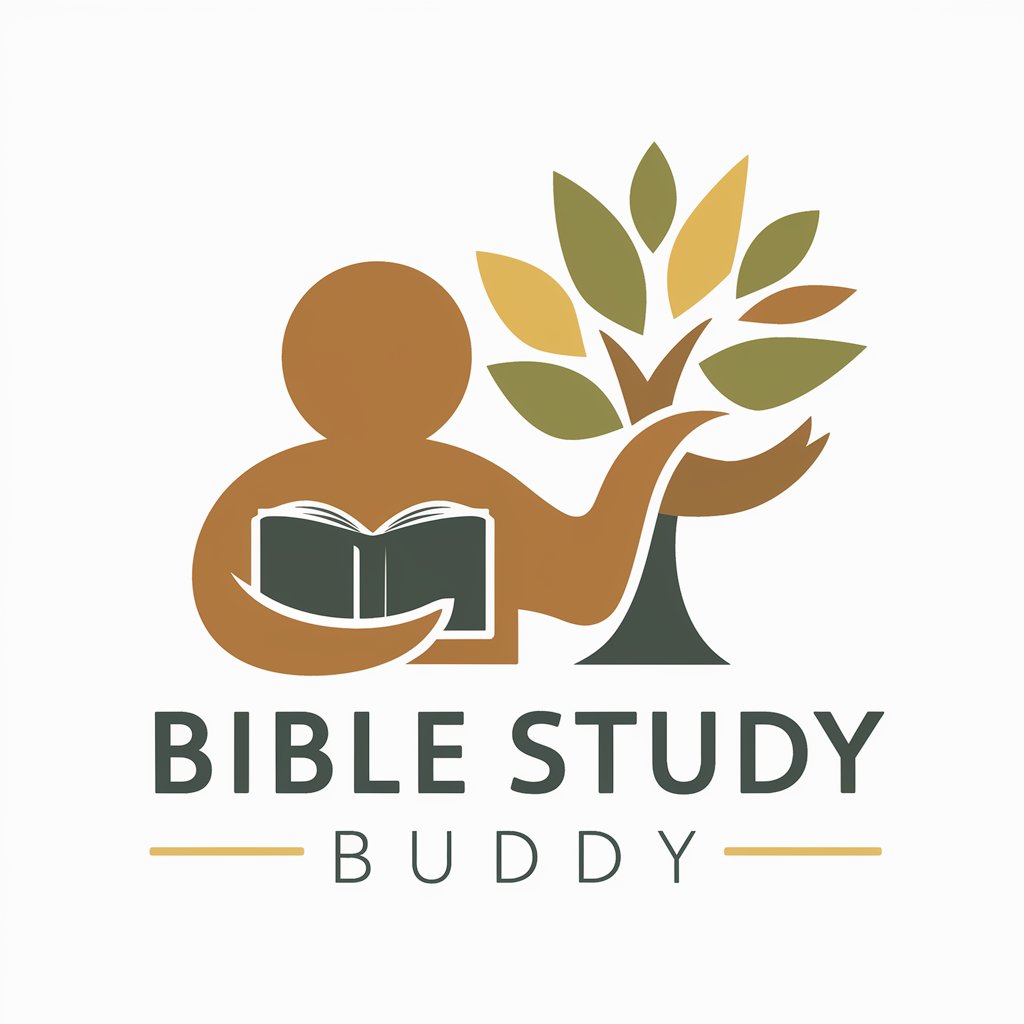6 GPTs for Biblical Understanding Powered by AI for Free of 2025
AI GPTs for Biblical Understanding are advanced tools designed to assist in interpreting, studying, and engaging with Biblical texts and concepts. Utilizing the power of Generative Pre-trained Transformers (GPTs), these tools offer tailored solutions for a range of tasks within the Biblical Understanding domain. They serve as an intersection of technology and theology, providing insights, translations, and interpretations based on vast databases of religious texts and scholarly works, making them relevant for both personal and academic exploration of the Bible.
Top 6 GPTs for Biblical Understanding are: Pastor Tee's Prayer Guide,God,Bible Wisdom,Bible Buddy,Bible Study Buddy,Celestial Guide
Pastor Tee's Prayer Guide
Empower your prayers with AI-driven biblical guidance.

God
Elevate Your Spirit with AI-Powered Guidance

Bible Wisdom
Discover Wisdom from the Bible, Powered by AI

Bible Buddy
Illuminating the Bible with AI

Bible Study Buddy
Your AI-Powered Scripture Companion

Celestial Guide
Enlighten your path with AI-powered guidance.

Key Attributes of AI GPTs in Biblical Studies
These AI GPTs tools offer unique capabilities like natural language processing for understanding Biblical texts in their original languages, context-aware interpretations, and cross-referencing with historical and theological resources. Their adaptability ranges from simple queries about Biblical passages to complex theological discussions. Special features include multi-language support, integration with technical and web search tools, image creation related to Biblical themes, and data analysis for scholarly research.
Intended Users of AI GPTs in Biblical Studies
The primary beneficiaries of AI GPTs for Biblical Understanding span from novices with a casual interest in the Bible to professionals in theology and religious studies. These tools are accessible to individuals without programming skills, offering an intuitive interface for exploring Biblical content. At the same time, they provide advanced customization options and programmable features for developers and scholars who seek deeper engagement and integration with their existing digital resources.
Try Our other AI GPTs tools for Free
Comfort and Support
Discover AI GPTs for Comfort and Support: tailored AI solutions designed to provide empathetic, personalized support and assistance. Ideal for individuals, healthcare professionals, and anyone in need of emotional guidance.
Moral and Ethical Insights
Explore AI-driven solutions for ethical dilemmas with our AI GPTs tools. Tailored insights for moral and ethical decision-making at your fingertips.
精神和道德指导
Explore AI GPTs for 精神和道德指导 – your gateway to advanced, empathetic AI tools tailored for spiritual and ethical guidance. Dive into a world of personalized advice, cultural sensitivity, and ethical reasoning.
人生决策辅助
Explore AI GPTs for 人生决策辅助, a transformative tool in decision-making. Experience advanced AI capabilities for personal and professional guidance, tailored to your needs.
情感和人际关系建议
Discover AI GPT tools for Emotional and Interpersonal Relationship Advice: innovative, user-friendly AI solutions for personalized emotional guidance and relationship insights.
个人成长和自我提升
Discover how AI GPTs empower personal growth and self-improvement, offering tailored advice, goal-setting strategies, and interactive learning experiences.
Further Perspectives on AI GPTs in Biblical Contexts
AI GPTs in the Biblical Understanding field offer transformative potential in how individuals and scholars engage with religious texts. They bring user-friendly interfaces that simplify complex theological concepts and enable seamless integration with existing workflows and systems. This opens new avenues for personalized learning, academic research, and enhancing the depth of theological discourse.
Frequently Asked Questions
What are AI GPTs for Biblical Understanding?
AI GPTs for Biblical Understanding are artificial intelligence tools designed to assist in comprehending and analyzing Biblical texts. They use advanced algorithms to provide insights, translations, and interpretations.
Who can benefit from using these AI GPTs tools?
These tools are beneficial for a wide range of users, from individuals with a general interest in the Bible to scholars and theologians who require deeper, more technical insights.
Do I need programming skills to use these tools?
No, these tools are designed to be user-friendly and accessible to individuals without programming skills, while also offering advanced features for those who wish to utilize them.
Can these tools interpret biblical texts in their original languages?
Yes, one of the key features of these tools is their ability to process and interpret Biblical texts in their original languages, providing contextually accurate translations.
Are there customization options available?
Yes, these tools offer various customization options, allowing users to tailor the experience to their specific needs, especially for scholarly or theological research.
Can AI GPTs integrate with other digital resources?
Yes, they can be integrated with existing digital resources and platforms, enhancing their utility in academic and religious studies.
Do these tools offer image creation related to Biblical themes?
Yes, some of these tools include image creation capabilities that can generate visuals related to Biblical themes and narratives.
How do AI GPTs assist in theological discussions?
These tools assist in theological discussions by providing context-aware interpretations, cross-references to historical texts, and analytical insights into theological concepts.